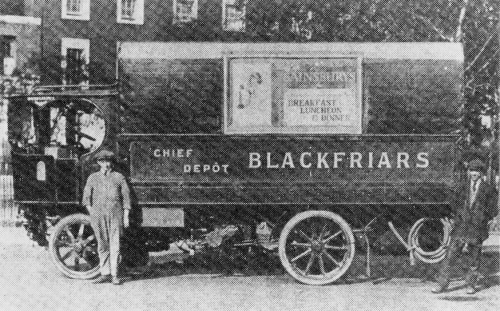Thylacine
master brummie
William Dauney (1800-1843).
[Just for the record, here is a "potted biography" of William Dauney, John Scott Russell's partner in the Glasgow – Paisley steam carriage business. Corrections, additions and comments are welcome.]
William Dauney (27 October1800 - 28 July 1843) was born in Aberdeen, the son of William Dauney of Falmouth, Jamaica. He was educated at Dulwich College, London, and at the University of Edinburgh (where he was President of the Speculative Society 1821-1822). He was called to the Scottish Bar on 13 June 1823. On 7 September 1826 at Aberdeen he married Margaret, eldest daughter of John Black of Halifax, Nova Scotia.
Dauney is best known as a music critic and historian and archaeologist of Scottish music. In 1831-1832 he served on a three-man committee to investigate and organize the music literature in the Advocates' Library, Edinburgh. In that library he found the Skene Manuscript, which he published as Ancient Scotish [sic] Melodies, from a Manuscript of the Reign of James VI: with an introductory Enquiry illustrative of the History of the Music of Scotland (Edinburgh: Edinburgh Printing and Publishing Company; London: Smith Elder & Co, 1838). The work shows what are probably the earliest versions of many Scottish tunes. He was a fellow of the Society of Antiquaries of Scotland and contributed to the Foreign Quarterly Review (1831), the Edinburgh Review (1836), and the Journal of the Royal Asiatic Society (1841), always on musical subjects.
In early 1834 Dauney entered into a partnership with John Scott Russell (1808-1882), trading as the Steam Carriage Company of Scotland and the Grove House Engine Manufactory of Edinburgh. Six steam carriages to Russell's design were built and operated on a Glasgow - Paisley passenger service from about March 1834 until 29 July 1834 when the boiler of one of the carriages exploded, killing at least four people and injuring many others. The consequent failure of the business venture caused the bankruptcy of the partners. Dauney's bankruptcy was discharged on 8 November 1837. Russell and Dauney sued the Glasgow Road Trustees (whom they held responsible for the accident) for damages of £10,000 and the case dragged on until after June 1836 (with unknown outcome).
In about 1839 Dauney went to Demerara as Solicitor-General for British Guiana (appointment gazetted 23 March 1843). He died in Georgetown, Demerara. His widow Margaret died on 22 November 1874 (aged 74) at Wardle Avenue, Edinburgh.
[Just for the record, here is a "potted biography" of William Dauney, John Scott Russell's partner in the Glasgow – Paisley steam carriage business. Corrections, additions and comments are welcome.]
William Dauney (27 October1800 - 28 July 1843) was born in Aberdeen, the son of William Dauney of Falmouth, Jamaica. He was educated at Dulwich College, London, and at the University of Edinburgh (where he was President of the Speculative Society 1821-1822). He was called to the Scottish Bar on 13 June 1823. On 7 September 1826 at Aberdeen he married Margaret, eldest daughter of John Black of Halifax, Nova Scotia.
Dauney is best known as a music critic and historian and archaeologist of Scottish music. In 1831-1832 he served on a three-man committee to investigate and organize the music literature in the Advocates' Library, Edinburgh. In that library he found the Skene Manuscript, which he published as Ancient Scotish [sic] Melodies, from a Manuscript of the Reign of James VI: with an introductory Enquiry illustrative of the History of the Music of Scotland (Edinburgh: Edinburgh Printing and Publishing Company; London: Smith Elder & Co, 1838). The work shows what are probably the earliest versions of many Scottish tunes. He was a fellow of the Society of Antiquaries of Scotland and contributed to the Foreign Quarterly Review (1831), the Edinburgh Review (1836), and the Journal of the Royal Asiatic Society (1841), always on musical subjects.
In early 1834 Dauney entered into a partnership with John Scott Russell (1808-1882), trading as the Steam Carriage Company of Scotland and the Grove House Engine Manufactory of Edinburgh. Six steam carriages to Russell's design were built and operated on a Glasgow - Paisley passenger service from about March 1834 until 29 July 1834 when the boiler of one of the carriages exploded, killing at least four people and injuring many others. The consequent failure of the business venture caused the bankruptcy of the partners. Dauney's bankruptcy was discharged on 8 November 1837. Russell and Dauney sued the Glasgow Road Trustees (whom they held responsible for the accident) for damages of £10,000 and the case dragged on until after June 1836 (with unknown outcome).
In about 1839 Dauney went to Demerara as Solicitor-General for British Guiana (appointment gazetted 23 March 1843). He died in Georgetown, Demerara. His widow Margaret died on 22 November 1874 (aged 74) at Wardle Avenue, Edinburgh.


